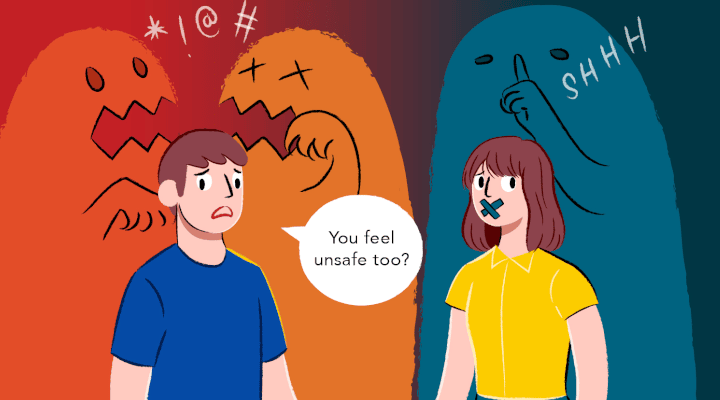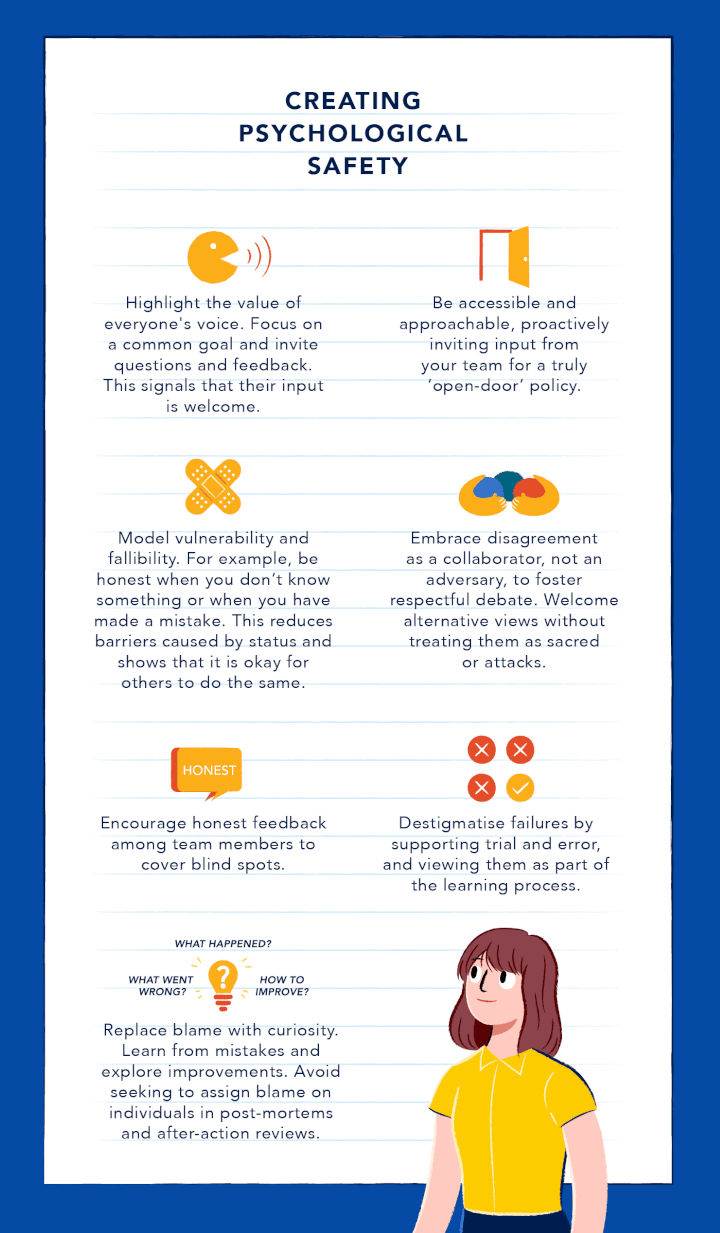The Perks Of Psychological Safety In The Workplace

Many of you may have come across the term ‘psychological safety’. It is a term that broke out of academic literature into the mainstream. Psychological safety gained prominence after it was cited in a 2016 Google study as the key factor in effective teams.
Harvard Business School Professor of Leadership Amy Edmondson describes psychological safety as “a belief that the context is safe for interpersonal risk taking – speaking up with ideas, questions, concerns, or mistakes will be welcomed and valued”.
More plainly put, it means that that we feel able to be candid and vulnerable in our environment, such as in our team or organisation, without the fear of being rejected, humiliated, or punished for sharing our ideas, questions, concerns, or mistakes.
What a Lack of Psychological Safety Looks Like
If an environment is unsafe, it is glaringly obvious and something we are extremely aware of.
John* shared that his team had become toxic with infighting and conflict due to two strong personalities who were always at odds. The team leader's inaction in addressing their behaviour allowed the conflicts and incivility to spread, leaving John feeling fearful, unhappy and disengaged – and seeking an opportunity to leave.

But it does not have to be such an obviously unsafe environment that can suppress employees and leave them feeling uncomfortable.
Sara* and her team often felt silenced in meetings, as their boss prioritised speed over discussion. They were always in ‘solution mode’, unable to take time to share opinions or concerns, even on non-urgent issues. Though they did not think their boss was intentionally trying to suppress their voices or opinions, the team felt unheard and eventually saw no point in speaking up.

These experiences are supported by research which has found that working in a psychologically unsafe environment can be extremely damaging to employees and the organisation. Employees are likely to become disengaged and dissatisfied with their work, and might eventually have impaired judgement and decision making. In unsafe environments, mistakes are hidden, learning and collaboration opportunities are lost, innovation is hampered, and talented employees may exit the organisation.
The Benefits of Psychological Safety
Research has found numerous benefits of psychological safety, such as increased employee engagement, job satisfaction, improved team performance and productivity, increased innovation and creativity, improved learning, improved collaboration, and less turnover.

Gwen* feels that her team is a safe environment, with a strong culture of being ‘all in it together’. Her boss fosters open communication, values members’ opinions, admits mistakes with humility and encourages working together to solve problems. The team's supportive culture allows for constructive feedback and idea exchange without fear of critiquing each other’s ideas or opinions.
Of course, this is not the only way that leaders develop psychological safety in their teams.
For Wen Chi*, everyone in his team understands their mission, roles and processes well. The boss empowered them by involving each team member in creating their mission and tasks, and was always ready to provide help. The autonomy given and belief in his abilities made Wen Chi feel trusted and supported, enabling him to get things done, take risks, step out of his comfort zone and grow.

Psychological safety is a necessary factor in creating sustainable and effective teams. Without its presence in teams throughout organisations like the Public Service, ideas would not be shared, issues would not be highlighted, risks would not be taken, learning would not occur, and at its worst, a lack of safety could have damaging and detrimental consequences. Beyond that, we all want to work in an environment where we feel safe, engaged, and able and willing to contribute to the success of the team and organisation.
How To Create Psychological Safety

For more information on psychological safety, read this research report from Civil Service College (PDF) by the author.
- POSTED ON
Sep 5, 2023
- TEXT BY
Dr Aurora de Souza Watters
- ILLUSTRATION BY
Ryan Ong








